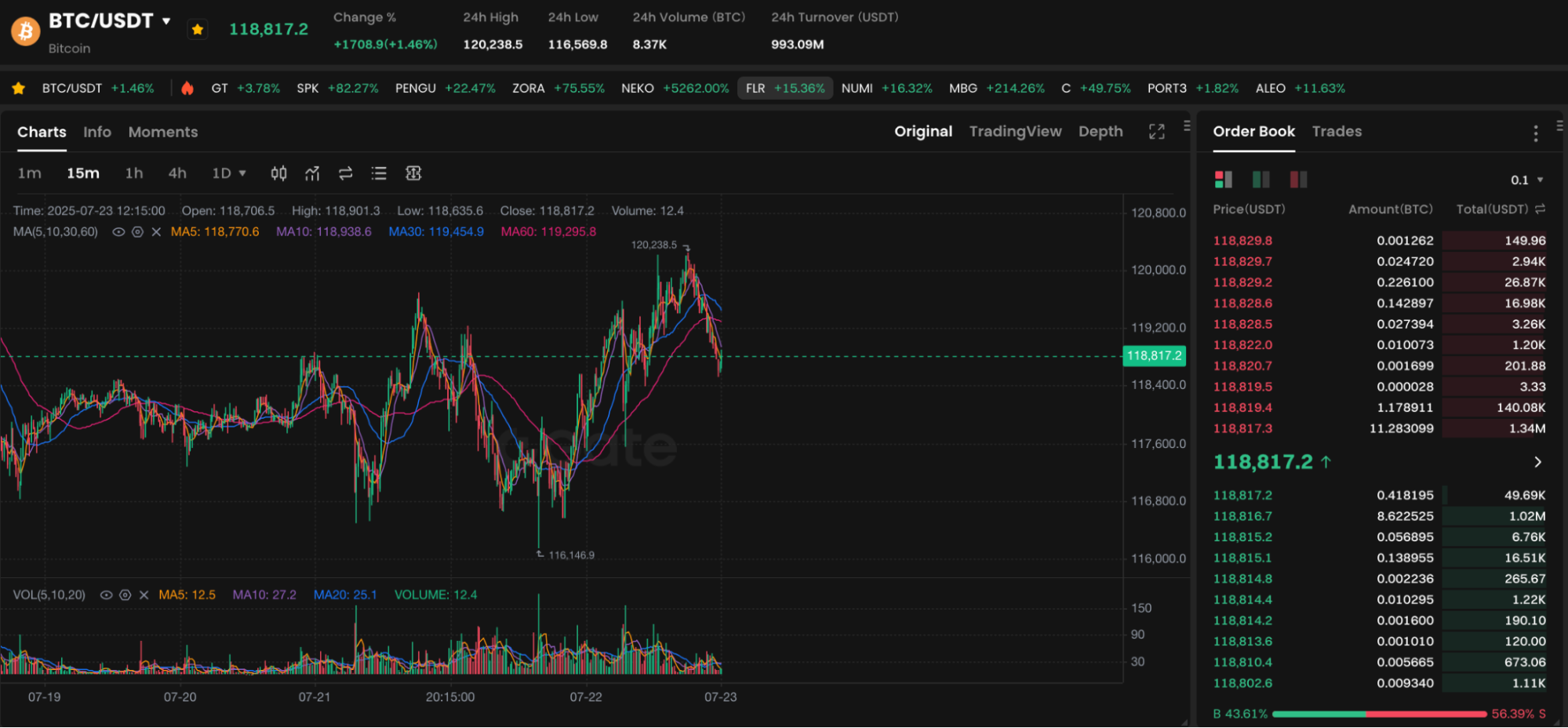Bitcoin: The Birth and Impact of the World’s First Decentralized Digital Currency
What Is Decentralized Digital Currency?
Decentralized digital currency refers to a digital asset that operates without reliance on a central authority such as a government or bank for issuance or control. Instead, it utilizes blockchain technology to record transactions, ensuring transparency, security, and resistance to tampering.
The Origin and Core Features of Bitcoin

Source: https://www.gate.com/trade/BTC_USDT
In 2008, the enigmatic figure Satoshi Nakamoto published the Bitcoin white paper, outlining a peer-to-peer electronic cash system with no need for intermediaries. In 2009, Bitcoin officially launched and heralded the arrival of the world’s first decentralized digital currency.
Key features of Bitcoin include a fixed maximum supply (21 million coins), issuance through mining, a decentralized network architecture, and a transparent ledger system (blockchain).
Why Is Bitcoin Considered the World’s First Decentralized Digital Currency?
Although earlier forms of electronic money—such as e-gold—existed, they were all managed by centralized institutions. Bitcoin was the first to achieve true decentralization. No single party can unilaterally control the network or user assets. This defines it as the world’s first decentralized digital currency.
The Significance and Advantages of Decentralization
Decentralization offers several key benefits:
- Censorship resistance: Without a central authority, no one can block user accounts or transactions.
- Global accessibility: Anyone with internet access can participate.
- Reduced transaction costs: Peer-to-peer transactions eliminate the need for intermediaries.
- Transparency and security: Blockchain ensures all transactions are openly recorded and resistant to tampering.
Bitcoin’s Influence on the Financial World
Bitcoin has sparked a worldwide focus on cryptocurrencies and blockchain technology. It has catalyzed the rise of emerging sectors like decentralized finance (DeFi) and NFTs, fundamentally reshaping traditional banking, payments, and investment models.
More countries and institutions are now actively engaging with the legality and regulation of digital assets, as traditional finance and decentralized finance increasingly intersect and integrate.
Looking Forward: Trends in Digital Currency Development
With digital transformation accelerating globally, digital currencies are poised to become a crucial part of the future financial landscape. Whether in the form of central bank digital currencies (CBDCs) or privately issued digital assets, decentralization will remain a foundational principle.
As the world’s first decentralized digital currency, Bitcoin will continue to play a vital role in technology, trust, and value storage.
Share
Content





